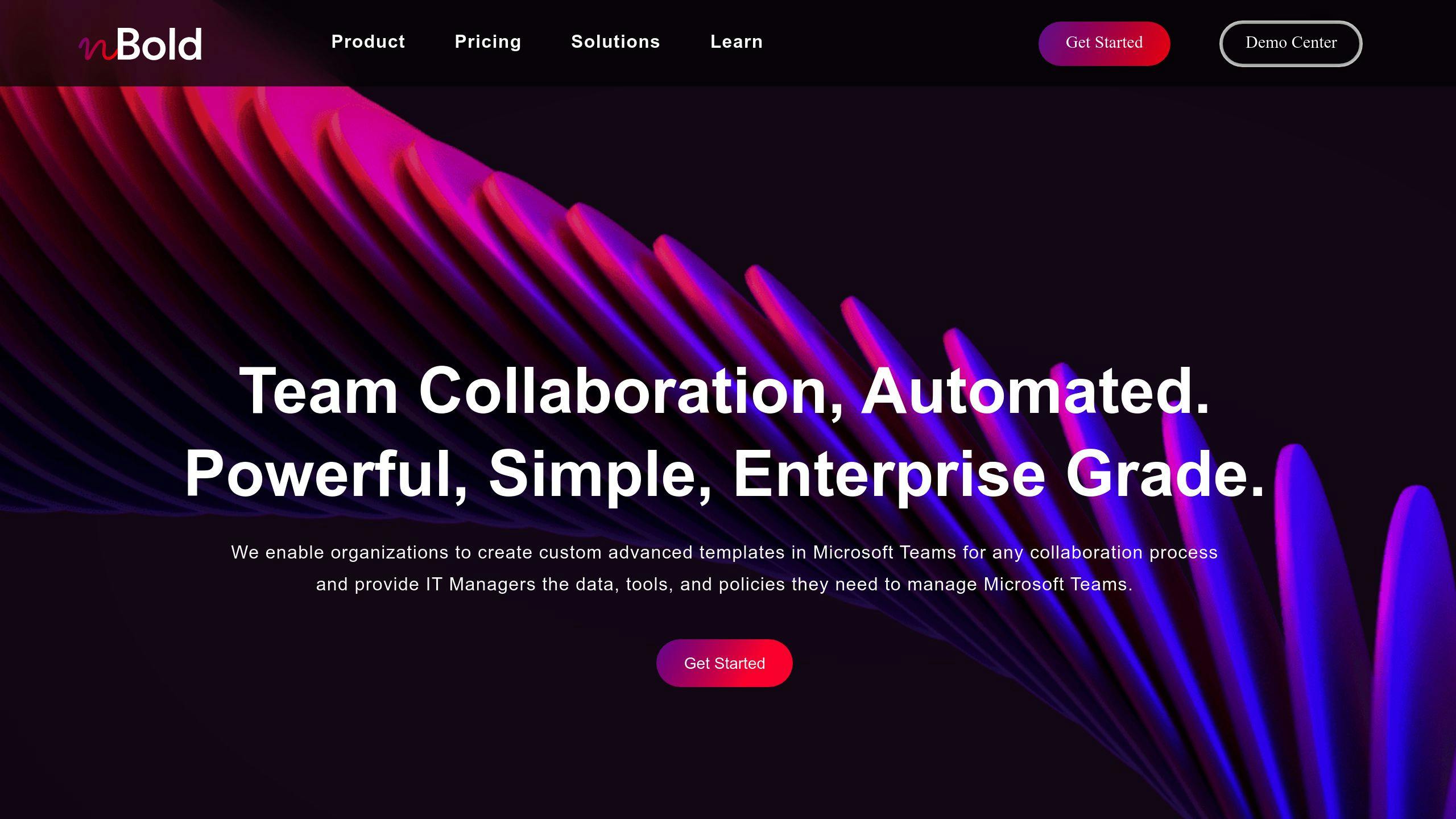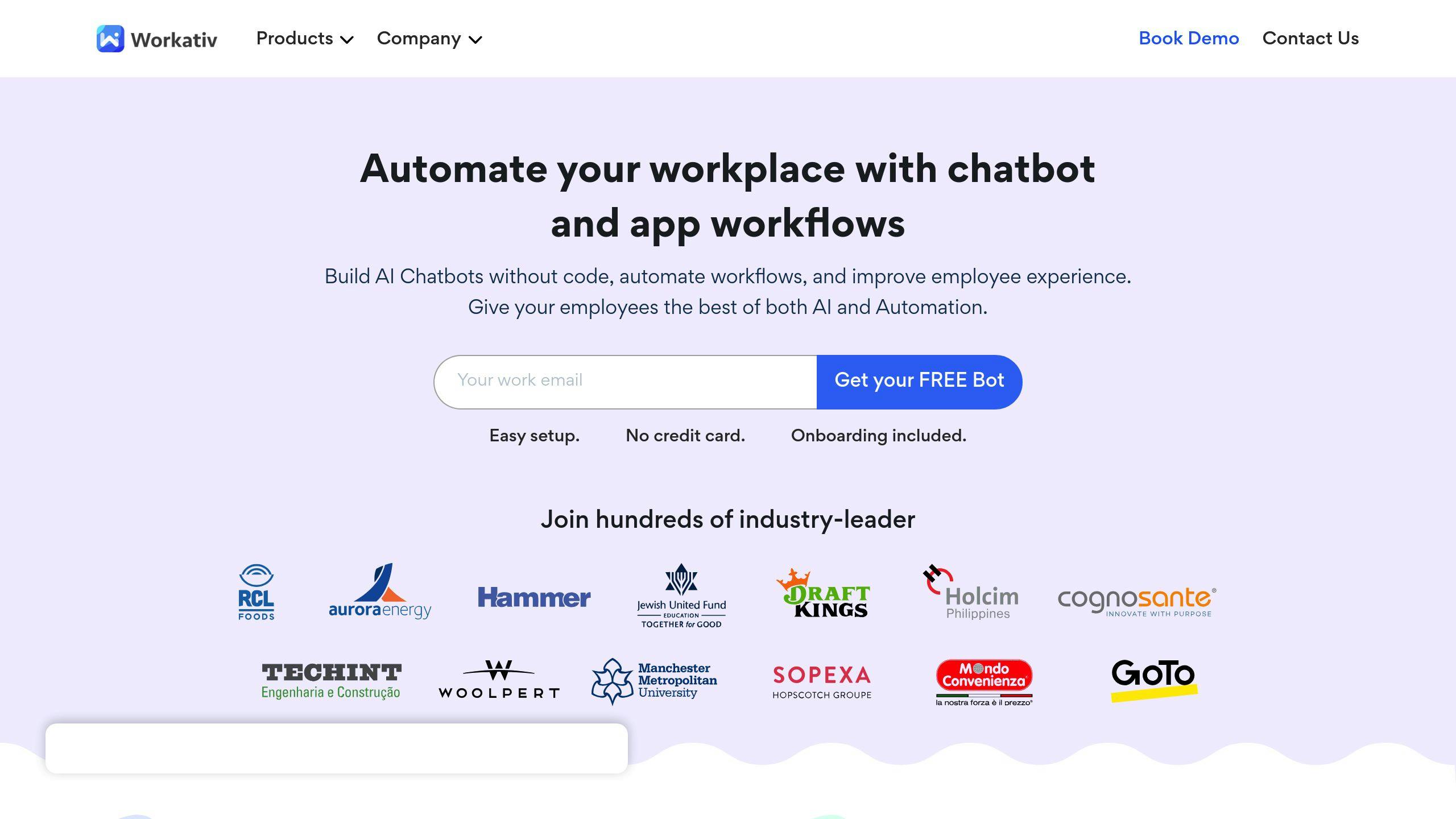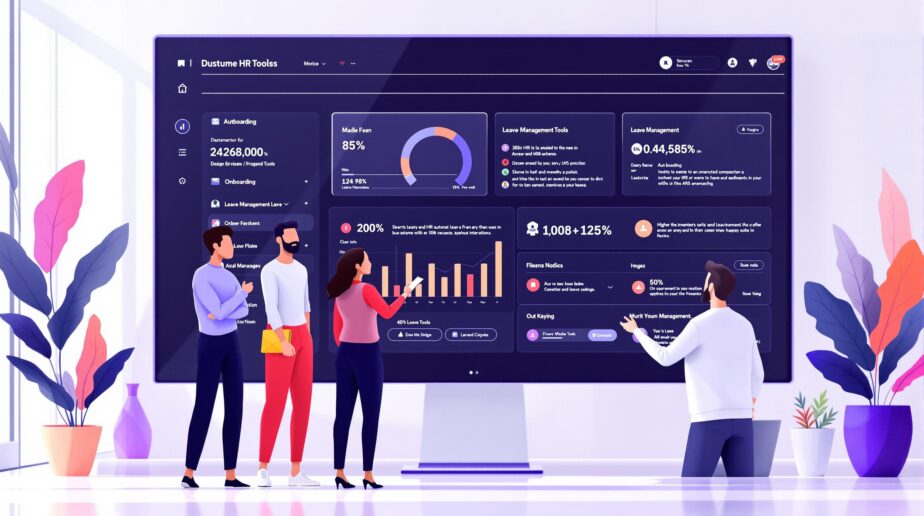Automating HR workflows in Microsoft Teams saves time, reduces errors, and simplifies processes like onboarding, leave requests, and employee support. Tools like Power Automate, SharePoint, and Microsoft Forms make it easy to centralize tasks, while solutions like nBold and Workativ offer templates and no-code automation for faster implementation. Here’s what you can achieve:
- Onboarding: Automate document sharing, IT setup, and training schedules.
- Leave Management: Streamline requests and approvals with instant notifications.
- HR Help Desk: Track and resolve employee issues efficiently.
Quick Summary of Tools:
| Tool | Purpose | Key Benefit |
|---|---|---|
| Power Automate | Workflow automation | Reduces manual tasks |
| SharePoint | Document management | Centralized storage, versioning |
| Microsoft Forms | Data collection | Simplifies form submissions |
| nBold | HR templates & automation | Standardizes HR processes |
| Workativ | No-code HR automation | Cuts manual effort by 50% |
Start with simple automations, then expand to complex workflows to make HR operations faster and more accurate.
Steps to Set Up HR Workflow Automation in Teams
How to Create an HR Team in Microsoft Teams
Start by heading to the ‘Teams’ tab in Microsoft Teams. Click on ‘Create a team,’ select ‘From scratch,’ and choose ‘Private’ to ensure security. Add team members using their email addresses.
Set up your HR team with specific channels for tasks like recruitment, employee relations, and benefits. Assign permissions based on each member’s role to keep things organized and secure. Regularly review security settings to protect sensitive data and meet compliance requirements.
Once your team structure is ready, you can bring in automation tools to make your workflows more efficient.
Connecting Power Automate and Other Tools
Power Automate works well with Teams to make workflow automation easier. You can find it in the Teams app store. After installing it, connect other essential tools like SharePoint and Microsoft Forms. Make sure to authenticate each service and test the connections before building your workflows.
| Integration Type | Purpose | Benefits |
|---|---|---|
| SharePoint | Document Management | Centralized storage, version control |
| Microsoft Forms | Data Collection | Simplifies data collection |
| Power Automate | Workflow Automation | Reduces manual tasks, saves time |
For a quick start, use pre-configured templates from the Teams Store. If you need more customization, tools like nBold can help. They offer team templates tailored for HR, making it easier to set up channels and file structures.
With these tools, you can automate processes like onboarding and approvals, helping your HR team work more consistently and efficiently across the board.
HR Workflows You Can Automate in Teams
Automating Employee Onboarding
With Power Automate in Teams, you can make onboarding much easier. Tasks like sharing contracts and policies can be automated, complete with version control to ensure everything stays accurate.
| Onboarding Task | Automation Perks | Time Saved |
|---|---|---|
| Document Distribution | Automatically sends policies and contracts | 2-3 hours per hire |
| IT Access Setup | Creates accounts without manual input | 1-2 hours per hire |
| Training Schedule | Schedules sessions and sends reminders | 1 hour per hire |
Once onboarding is handled, you can shift focus to other processes like managing leave requests.
Simplifying Leave and Approval Processes
Streamline leave requests by using Power Automate and Microsoft Forms. Employees can submit requests directly in Teams, which are then routed to managers for quick approval. Managers can approve with a single click, and employees are automatically notified about the status of their requests.
In addition to approvals, setting up an automated HR help desk can improve overall support.
Setting Up an Automated HR Help Desk
An automated HR help desk in Teams captures employee requests, directs them to the appropriate HR team member, and tracks how quickly issues are resolved. This approach ensures no request is missed, maintains consistent service, and keeps response times on track.
sbb-itb-8be0fd2
Easily Create Workflows in Teams with Power Automate
Tools to Improve HR Workflow Automation in Teams
Improving HR workflow automation in Teams requires tools that simplify processes and cut down on manual tasks. Below are two standout solutions that can help your HR team work smarter.
nBold: Streamline HR Processes with Templates and Automation

nBold offers collaboration technology tailored for Microsoft Teams, helping HR teams standardize processes without disrupting their current workflows. Its integration with Teams makes it a go-to solution for organizing and automating HR tasks. Here’s what it brings to the table:
| Feature | Benefit | Example in HR |
|---|---|---|
| Templates | Consistent processes and documents | Streamlined onboarding and HR documentation |
| Channel Automation | Centralized communication spaces | Dedicated channels for HR projects |
| Planner Integration | Organized task management | Tracking HR initiatives and deadlines |
For HR, this means quicker onboarding, clear task tracking, and well-organized communication. Plus, nBold connects with HRIS systems, ensuring everything runs smoothly while meeting compliance requirements.
Workativ: No-Code Automation for HR Tasks

Workativ makes automating HR tasks simple, even for those without technical expertise. This no-code platform is designed to save time on repetitive tasks like onboarding and leave management.
"Workativ simplifies HR automation, cutting manual effort by up to 50% for processes like onboarding."
Its pre-built bots and workflows handle a variety of HR tasks directly in Teams:
| HR Task | Automation Feature | Benefit |
|---|---|---|
| IT Setup | Self-service provisioning | Faster workstation setup |
| Software Access | Automated system provisioning | Quicker access to tools |
| Mentor Assignment | Automatic matching and alerts | Efficient mentorship programs |
Automating HR Tasks in Teams for Better Results
Streamlining HR workflows through automation in Teams can significantly ease workloads. It helps reduce manual tasks by up to 80%, speeds up processes by 50%, and minimizes errors by 90%, making HR operations more efficient and accurate.
Tools like Power Automate and nBold offer key solutions for HR automation. Begin with straightforward tasks like onboarding and leave management. Once your team becomes familiar with these tools, you can move on to handling more complex processes. Teams acts as the central hub, integrating these tools to unify workflows and collaboration.
The goal of HR automation is to make operations faster and more effective. With Teams as the core platform, and by leveraging Power Automate for workflows and nBold for templates, HR professionals can shift their focus to strategic activities that support organizational growth.
